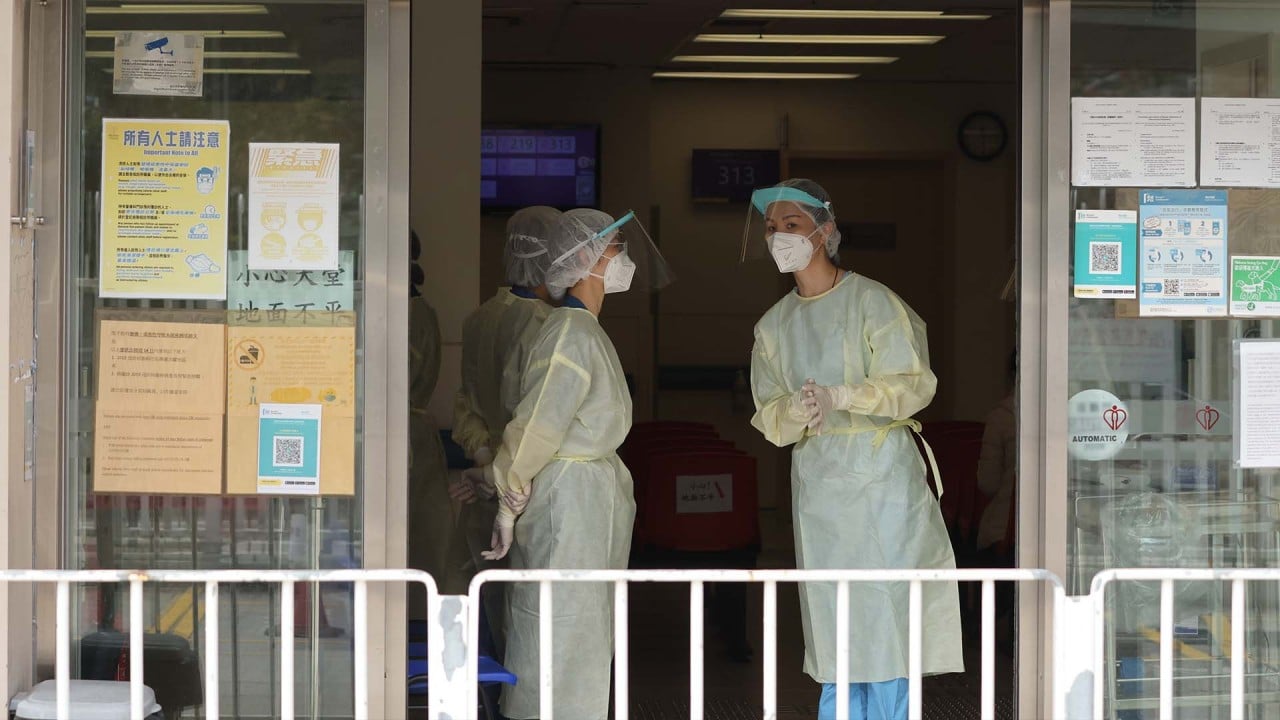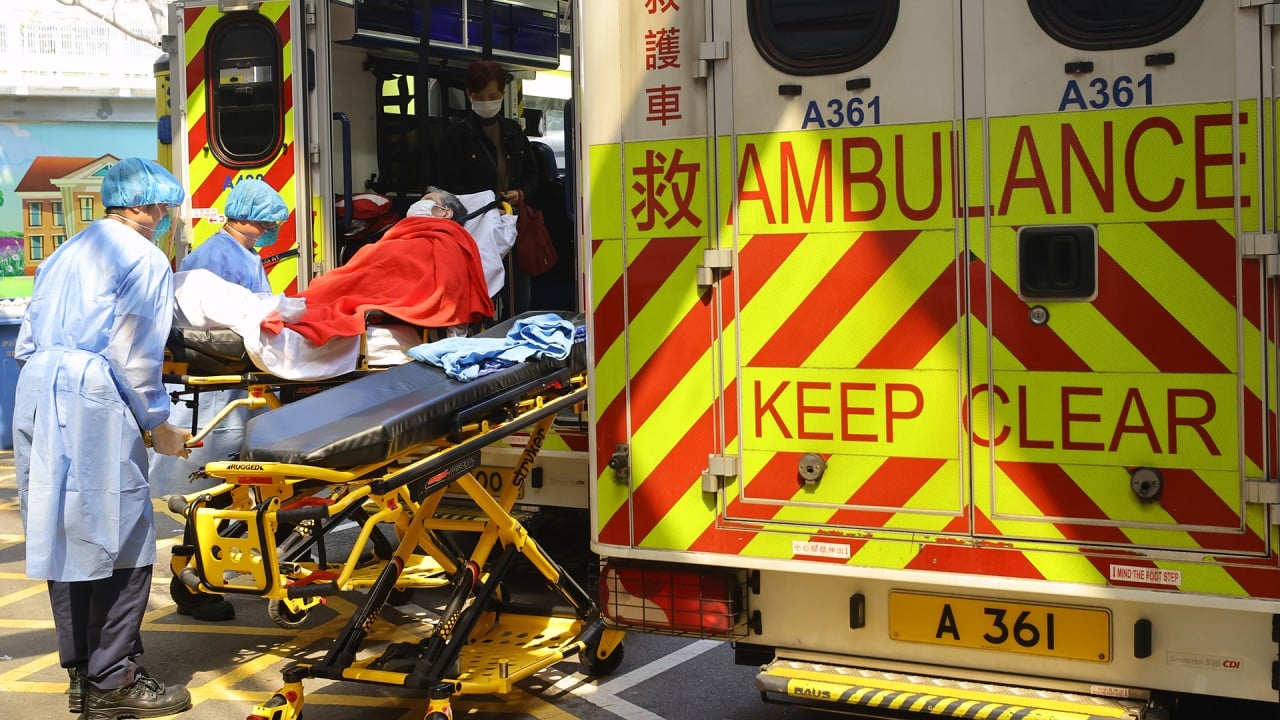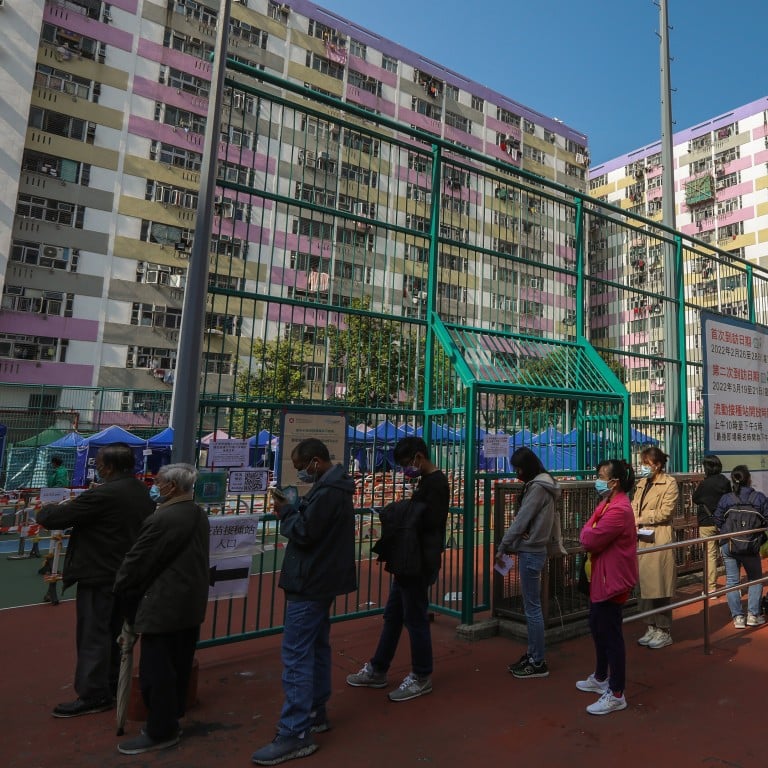
Explainer | Coronavirus: as Hong Kong fights fifth wave of infections, what are the latest rules on testing, quarantine and vaccination?
- Changes such as registering positive results using rapid antigen tests on a government portal can help speed up confirmation of Covid-19 infections
- Close contacts who are at least double vaccinated can leave quarantine earlier if they test negative using rapid antigen kits on sixth and seventh days
What are the latest testing criteria?
Authorities on Friday said they would soon recognise residents who returned positive results using rapid antigen tests (RAT) as confirmed cases immediately once they registered the information with the government online.
The new website will be operational “in a few days”, according to Albert Au Ka-wing, principal medical and health officer for the Centre for Health Protection (CHP). Those who tested positive can send in their personal particulars, including their names, birth dates, ID numbers and close contact details.
Health authorities would then treat them as confirmed cases and instruct them to remain isolated. They would also send them relevant materials, such as a home quarantine notice for their family members, and deliver test kits to their residences.
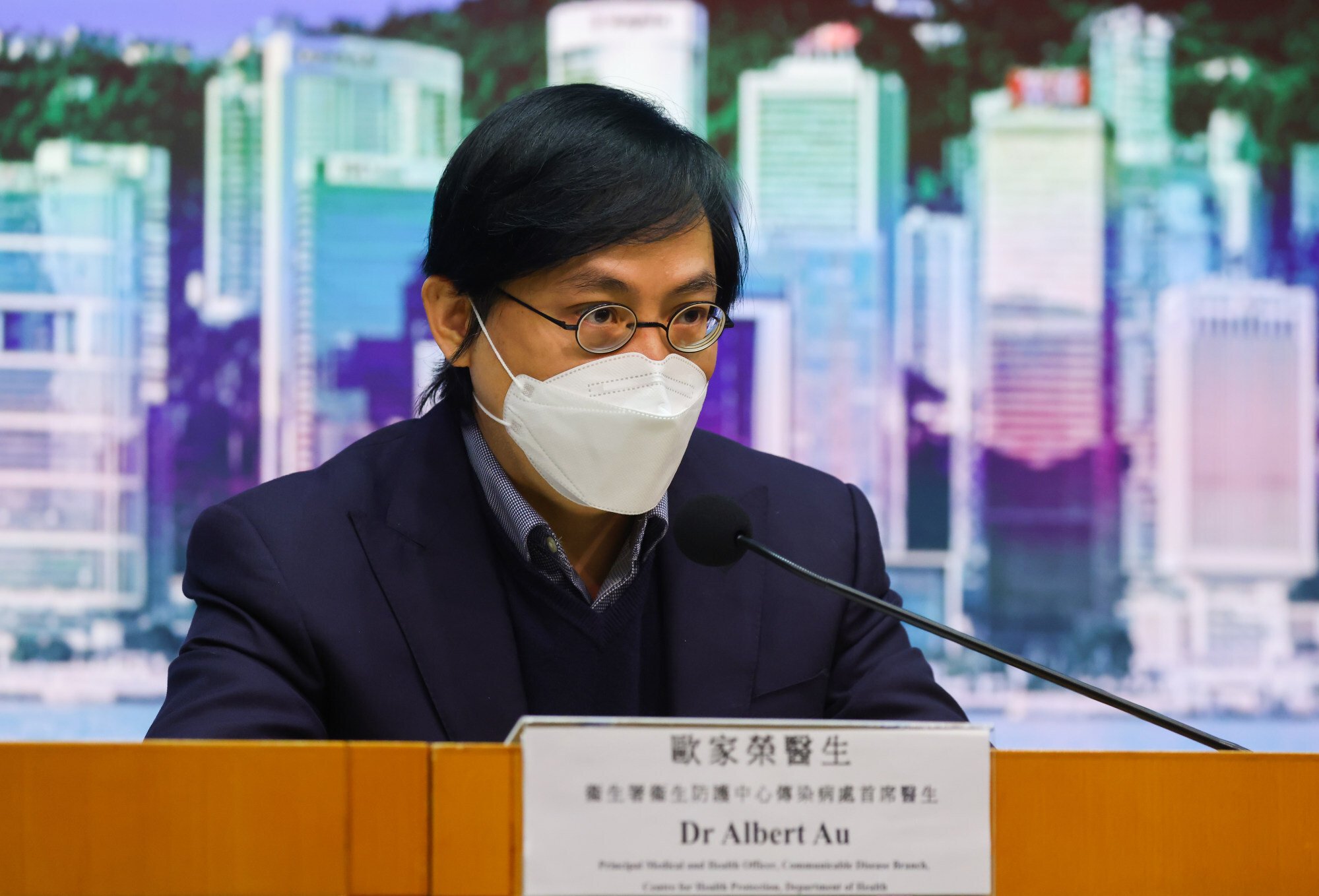
While most people subject to compulsory testing can use RAT kits at home instead of lining up at community testing centres or using a specimen bottle for saliva samples, those deemed to have high exposure risk, such as workers at quarantine centres or the airport, will still be required to take a nucleic acid test.
Results from private labs will no longer require further testing for confirmation by the CHP, given the severe backlog.
The changes can significantly speed up confirmation of Covid-19 infections. Currently it takes from a few days to more than a week to process nucleic acid tests, given the exponential growth of cases.
Previously, the CHP conceded that “a significant portion” of specimens could not be confirmed within 48 hours, with about 10,000 to 20,000 test results pending verification.
Top mainland Chinese expert on Covid to arrive in Hong Kong; 26,026 cases logged
The new system, however, relies on self-reporting and people’s honesty, but respiratory medicine specialist Dr Leung Chi-chiu has doubts it will work.
“We need to … encourage reporting, such as letting residents go to designated clinics and giving sick leave certificates, so people would cooperate,” he said.
Government pandemic adviser Professor David Hui Shu-cheong suggested residents ensure they had medical supplies, such as Panadol, on hand if they had to self-isolate at home and stock up on enough RAT kits for daily testing after testing positive.
Who are deemed close contacts now?
Officials have also changed their rules for those who tested positive using RAT kits at home.
Conversely, if they obtain at least one positive test result on these two days, they will need to continue undergoing isolation or home quarantine.
Those who are not double vaccinated will still need to complete a 14-day quarantine regime. Dr Leung said the measures were a “last resort” as official testing capacities using PCR tests were overwhelmed, but that residents exhibiting symptoms should still take a PCR test.
Under what circumstances can patients be discharged from hospital?
The Hospital Authority will exercise clinical judgment and assess patients’ risk level. If patients are in a stable condition and their residential or care home environment is suitable, they will remain there after discharge from hospital until they obtain a negative result.
Those who are vaccinated can resume their daily lives upon testing negative on day six or seven, while unvaccinated patients can only do so after testing negative on day 14.
A government spokesperson said medical resources could be more effectively deployed this way.
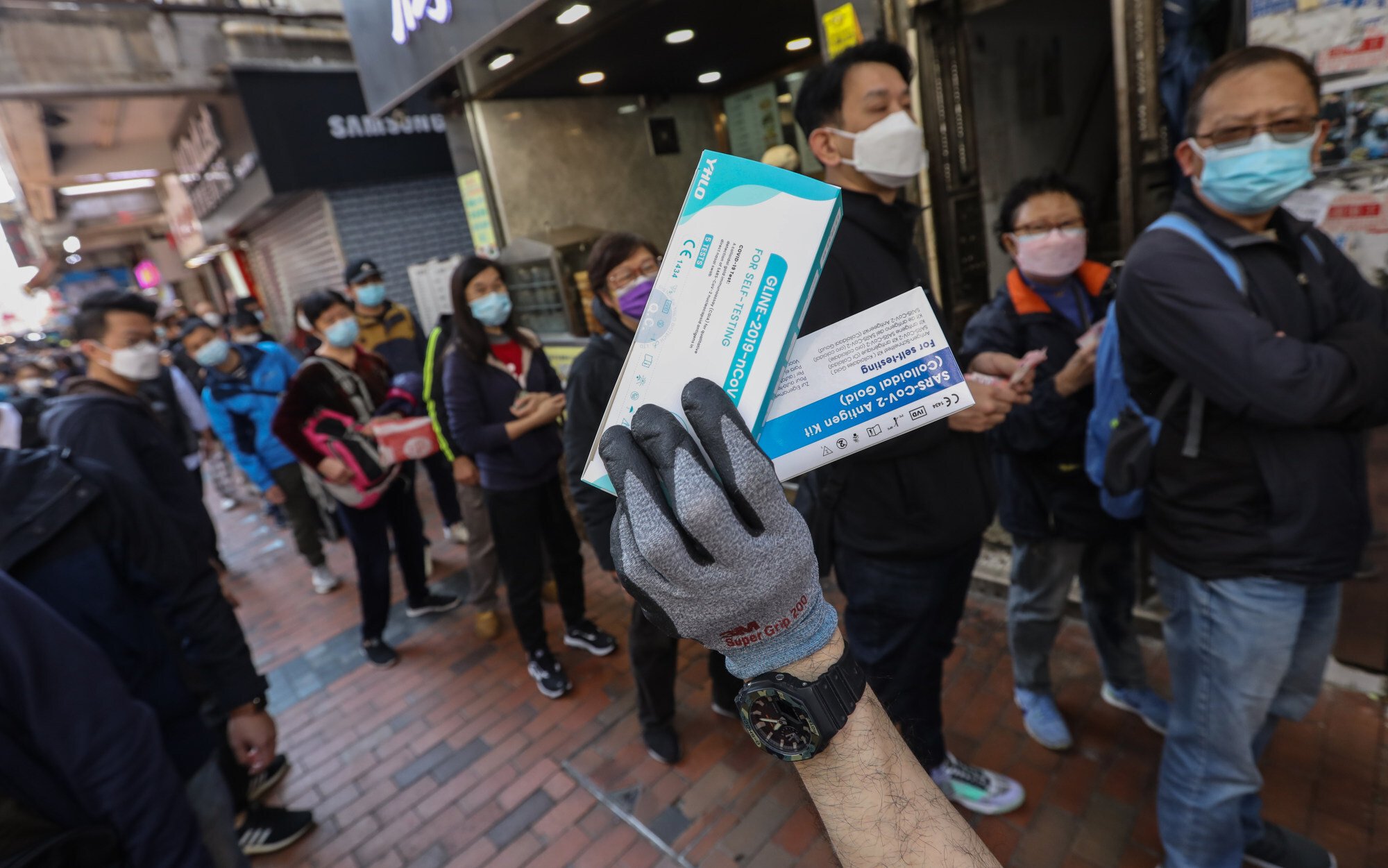
What are the latest changes on vaccination for adults and children?
Experts “strongly recommend” the German-made BioNTech vaccine as a third dose for adults, regardless of whether recipients have taken it or the Chinese-produced Sinovac for their first two shots.
Hui said those who took three doses of BioNTech had higher antibody levels than those with three of Sinovac. But protection levels could still be increased for Sinovac recipients if they took a third BioNTech jab, he said. The third dose should be taken three months after the second, a reduction from the currently recommended six months.
Hui said the intervals needed to be shortened in light of the surging outbreak, so residents could build up their immunity and antibody levels.
Meanwhile, the Department of Health on Sunday also recommended pregnant women to receive Covid-19 jabs.
Hong Kong to deploy tracking wristbands for Covid-19 patients
It said pregnant women had a higher chance of developing serious complications after contracting the virus, but vaccines could reduce the risk of hospitalisation and deaths among them, with the antibodies passing to the fetus through the umbilical cord.
Experts also recommended that children aged five to 17 who had received a first dose of the BioNTech vaccine should take the second eight weeks later, down from 12 weeks.
Adolescents aged 12 to 17 who have received two Sinovac doses should take their third dose – either brand is acceptable – as soon as three months after the second shot.
If they received two BioNTech doses, the third shot should be injected five months from the last, while the Sinovac vaccine should be made available as an alternative.
Children aged below 12 should not take a third dose, the experts advised, based on overseas practice and the lack of supporting scientific evidence.
A fourth dose is recommended for immunocompromised patients aged 12 and above.
Can employment laws better protect patients or those under compulsory isolation?
A new bill introduced on Friday could allow employees to be eligible for sick leave if they have to comply with the government’s Covid-19 measures, such as undergoing compulsory isolation.
An employee who is laid off for following these measures will be considered to have been unreasonably dismissed.
The bill also proposes that employees can be rightfully dismissed if they cannot produce recognised vaccination proof or comply with the vaccine pass scheme on their employer’s request. Only those with sufficient medical reasons can be exempted.
The bill will be tabled to the Legislative Council for scrutiny as soon as possible.


